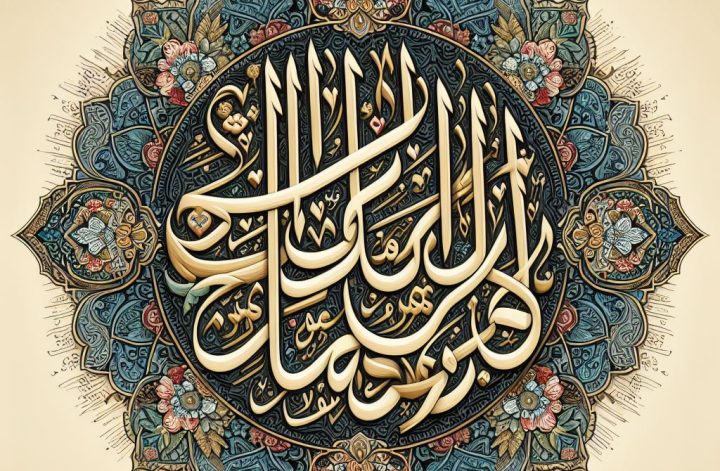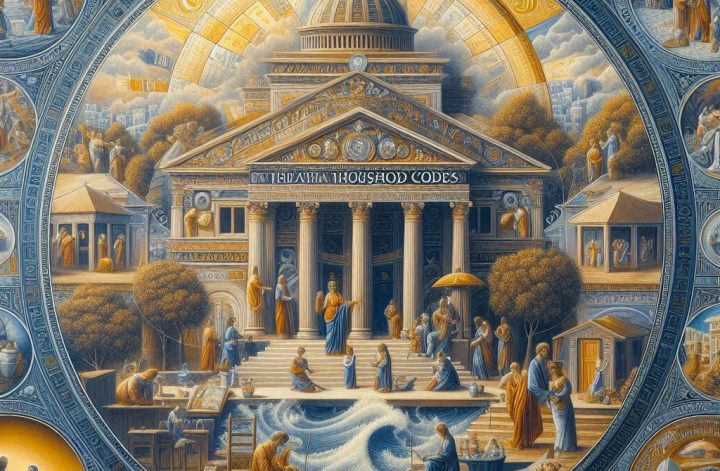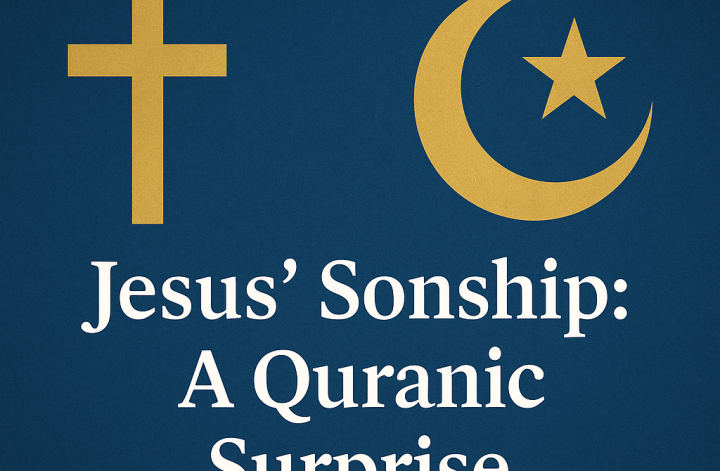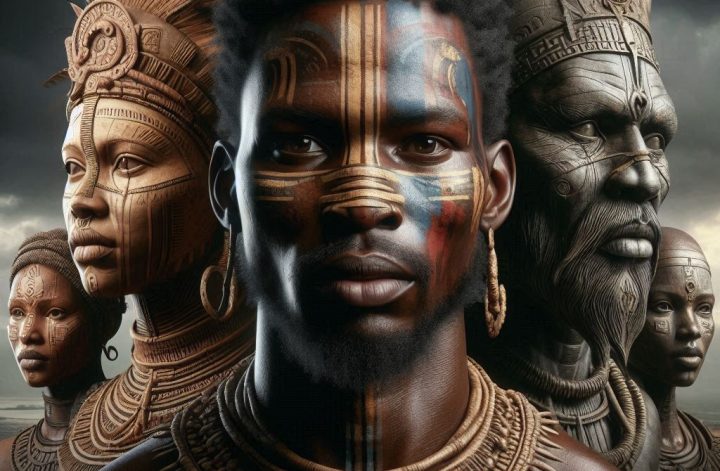We have seen enough examples to demonstrate that some extra-biblical materials in the Quran ultimately derived from Judeo-Christian writings, whether commentaries or creative fictional works. There are other examples one may cite, such as how a raven taught Cain to bury his murdered brother, Jesus talking as an infant, Joseph’s torn tunic (establishing his innocence with Potiphar’s wife), and Jinn being created from fire. These all derived from Jewish exegetical works. These observations undermine certain critical Islamic beliefs.
First, the idea that the Quran is a perfect revelation from God given to restore corrupted biblical materials or details is undercut. Muslims typically believe this idea not because there is such evidence of corruption in the Bible but because many of them believe that the Quran says so, and they believe the Quran. (At this point, the typical Muslim reader thinks of differing details in the original Biblical manuscripts as evidence of corruption. Yes, “corruption,” but not the kind that helps the Quran’s narrative. Furthermore, Quranic manuscripts also show differing details as well. See our dedicated treatment of this issue here.) Second, the extra-biblical details that the Quran features are from known fictional sources. As we shall see soon, the Quran preserves evidence of seventh-century critics pointing out to Muhammed that his stories were not original but adaptations of old sayings. In light of all we have said, let us now look into the Quran’s position on two Christian doctrines: the crucifixion of Jesus and the Trinity.
The Quran on the Crucifixion
One of the best-known teachings of the Quran is its emphatic denial of the death of Jesus. On historical grounds, a witness 600 years later than the event would ordinarily not be taken seriously. But the Quran is, according to Muslims, no ordinary book. It is the perfect revelation of the all-knowing God. Here is Quran 4:157,
Surah An-Nisa, Verse 157:
وَقَوْلِهِمْ إِنَّا قَتَلْنَا الْمَسِيحَ عِيسَى ابْنَ مَرْيَمَ رَسُولَ اللَّهِ وَمَا قَتَلُوهُ وَمَا صَلَبُوهُ وَلَٰكِن شُبِّهَ لَهُمْ وَإِنَّ الَّذِينَ اخْتَلَفُوا فِيهِ لَفِي شَكٍّ مِّنْهُ مَا لَهُم بِهِ مِنْ عِلْمٍ إِلَّا اتِّبَاعَ الظَّنِّ وَمَا قَتَلُوهُ يَقِينًا
And their saying: Surely we have killed the Messiah, Isa son of Marium, the apostle of Allah; and they did not kill him nor did they crucify him, but it appeared to them so (like Isa) and most surely those who differ therein are only in a doubt about it; they have no knowledge respecting it, but only follow a conjecture, and they killed him not for sure.
In context, the Quran is berating Jews for unbelief and godlessness, like how prophets like Jeremiah and Ezekiel did. It even goes as far back as portraying the Jews as disloyal from the days of Moses (4:153) and rejoicing in killing God’s prophets (4:155). Jesus, Isa, was one such prophet they rejoiced over killing. However, in verse 157, the Quran says, “They did not kill him nor did they crucify him, but it appeared to them so (like Isa)”. So, though the Jews thought they had killed Jesus in the first century, 600 years later, the Quran denies the killing and offers an explanation: whoever they thought they killed was a look-alike of Jesus. How does one make sense of this?
The Quran does not tell a detailed story surrounding the crucifixion event, so one must do one’s best to fill in the gaps somewhat. A tafseer (an exegetical commentary) on the chapter by Abul Ala Maududi says,
“As a result of a comparative study of the Qur’anic and Biblical versions, we are persuaded that, so far as the trial at the court of Pilate is concerned, it was probably Jesus who was tried. Pilate sentenced him to death after the Jews showed their deep hostility to Truth and righteousness by openly declaring that, in their view, the life of a thief was of higher value than that of a man with such a pure soul as Jesus. It was then that God raised Jesus up to heaven.”
So, this mufassir (author) takes as accurate the extant biblical narrative surrounding the death of Jesus up to Pilate’s sentencing. The Bible, according to the mufassir, gets it wrong afterwards. The point this verse seems to make is that whoever it was that the Roman authorities crucified was, in fact, not Jesus (Isa). Notice the following implications. First, the Quran presupposes that there was a crucifixion that day. Second, everyone there present – Jesus’s family members, especially his grieving mom, the disciples, Roman authorities, opposing Jewish leaders, and Roman soldiers – all believed it was Jesus. But the testimony of this verse is that all these heavily invested people were mistaken.
Now, this raises a few problems. If this verse is true, it severely undermines the reliability of human cognitive faculties. If all those different groups (including a mother) with different interests, in Jesus’ case, could not trust their mental faculties – and we should point out that these faculties were reliable until the moment of crucifixion – this ramps up the philosophical problem of skepticism to another God-sanctioned level. Extreme philosophical skepticism can make life feel utterly unliveable. Imagine not being certain of who your spouse is when you go to bed, questioning whether you’re truly reading this text, doubting if the children you tucked in last night are the same ones you see today, and feeling unsure about your understanding or memory of the Quran or anything else. This unsettling reality stems from the idea that God might have performed an unverifiable miracle in the blink of an eye, leaving you in a constant state of uncertainty.
Someone might say, “No, it is not that human cognition is untrustworthy, but Allah performed a miracle to rescue his faithful prophet that day.” The result is the same. If Allah did a miracle that no one knew about for 600 years, the practical effect is still that the cognition of the people involved was massively unreliable. For instance, according to the extant biblical story, Jesus’ mom died believing that her son was killed (and resurrected). His friends also died, some of them gruesomely, because they believed Jesus was killed (and resurrected). Indeed, they even started a worldwide movement on the belief that Jesus was killed. Six hundred years later, we supposedly learn the truth about a miracle! As Descartes painfully learned, such a world of skepticism is not livable.
We should confidently dismiss the testimony of the Quran on historical grounds and reject the rewriting of history in the name of God. The crucifixion of Jesus is one of those historical events that historians of various metaphysical persuasions agree on. We also reject the skepticism accompanying the universe the Quran portrays. If a nursing mother cannot be sure that the infant is the same one she birthed recently, we may as well all be brains in some evil genius’ vat.
The Quran on the Trinity
The Quranic teaching on a Trinitarian conception of God is another well-known case. Quran 5 has a few things to say:
Surah Al-Maeda, Verse 17:
لَّقَدْ كَفَرَ الَّذِينَ قَالُوا إِنَّ اللَّهَ هُوَ الْمَسِيحُ ابْنُ مَرْيَمَ قُلْ فَمَن يَمْلِكُ مِنَ اللَّهِ شَيْئًا إِنْ أَرَادَ أَن يُهْلِكَ الْمَسِيحَ ابْنَ مَرْيَمَ وَأُمَّهُ وَمَن فِي الْأَرْضِ جَمِيعًا وَلِلَّهِ مُلْكُ السَّمَاوَاتِ وَالْأَرْضِ وَمَا بَيْنَهُمَا يَخْلُقُ مَا يَشَاءُ وَاللَّهُ عَلَىٰ كُلِّ شَيْءٍ قَدِيرٌ
Certainly they disbelieve who say: Surely, Allah– He is the Messiah, son of Marium. Say: Who then could control anything as against Allah when He wished to destroy the Messiah son of Marium and his mother and all those on the earth? And Allah’s is the kingdom of the heavens and the earth and what is between them; He creates what He pleases; and Allah has power over all things,
Surah Al-Maeda, Verse 72:
لَقَدْ كَفَرَ الَّذِينَ قَالُوا إِنَّ اللَّهَ هُوَ الْمَسِيحُ ابْنُ مَرْيَمَ وَقَالَ الْمَسِيحُ يَا بَنِي إِسْرَائِيلَ اعْبُدُوا اللَّهَ رَبِّي وَرَبَّكُمْ إِنَّهُ مَن يُشْرِكْ بِاللَّهِ فَقَدْ حَرَّمَ اللَّهُ عَلَيْهِ الْجَنَّةَ وَمَأْوَاهُ النَّارُ وَمَا لِلظَّالِمِينَ مِنْ أَنصَارٍ
Certainly they disbelieve who say: Surely Allah, He is the Messiah, son of Marium; and the Messiah said: O Children of Israel! serve Allah, my Lord and your Lord. Surely whoever associates (others) with Allah, then Allah has forbidden to him the garden, and his abode is the fire; and there shall be no helpers for the unjust.
Surah Al-Maeda, Verse 73:
لَّقَدْ كَفَرَ الَّذِينَ قَالُوا إِنَّ اللَّهَ ثَالِثُ ثَلَاثَةٍ وَمَا مِنْ إِلَٰهٍ إِلَّا إِلَٰهٌ وَاحِدٌ وَإِن لَّمْ يَنتَهُوا عَمَّا يَقُولُونَ لَيَمَسَّنَّ الَّذِينَ كَفَرُوا مِنْهُمْ عَذَابٌ أَلِيمٌ
Certainly they disbelieve who say: Surely Allah is the third (person) of the three; and there is no god but the one Allah, and if they desist not from what they say, a painful chastisement shall befall those among them who disbelieve.
Surah Al-Maeda, Verse 75:
مَّا الْمَسِيحُ ابْنُ مَرْيَمَ إِلَّا رَسُولٌ قَدْ خَلَتْ مِن قَبْلِهِ الرُّسُلُ وَأُمُّهُ صِدِّيقَةٌ كَانَا يَأْكُلَانِ الطَّعَامَ انظُرْ كَيْفَ نُبَيِّنُ لَهُمُ الْآيَاتِ ثُمَّ انظُرْ أَنَّىٰ يُؤْفَكُونَ
The Messiah, son of Marium is but an apostle; apostles before him have indeed passed away; and his mother was a truthful woman; they both used to eat food. See how We make the communications clear to them, then behold, how they are turned away.
Surah Al-Maeda, Verse 116:
وَإِذْ قَالَ اللَّهُ يَا عِيسَى ابْنَ مَرْيَمَ أَأَنتَ قُلْتَ لِلنَّاسِ اتَّخِذُونِي وَأُمِّيَ إِلَٰهَيْنِ مِن دُونِ اللَّهِ قَالَ سُبْحَانَكَ مَا يَكُونُ لِي أَنْ أَقُولَ مَا لَيْسَ لِي بِحَقٍّ إِن كُنتُ قُلْتُهُ فَقَدْ عَلِمْتَهُ تَعْلَمُ مَا فِي نَفْسِي وَلَا أَعْلَمُ مَا فِي نَفْسِكَ إِنَّكَ أَنتَ عَلَّامُ الْغُيُوبِ
And when Allah will say: O Isa son of Marium! did you say to men, Take me and my mother for two gods besides Allah he will say: Glory be to Thee, it did not befit me that I should say what I had no right to (say); if I had said it, Thou wouldst indeed have known it; Thou knowest what is in my mind, and I do not know what is in Thy mind, surely Thou art the great Knower of the unseen things.
So, this chapter depicts Allah as being all-powerful and able to destroy whoever he wants, including Mary and Jesus, if he so wished. He is not to be compared to mortals. Even the Messiah himself, a term with a completely different meaning in the Quran, from heaven perhaps, implores his Jewish people to worship Allah. Verse 73 recognizes a trinity and immediately rejects such a thing by informing readers that only one Allah exists. We are then told in verse 75 that Jesus was as human as it gets. He was merely one of many human apostles and ate food like humans all do. The idea here is that Allah would not need to eat, and since Jesus did eat food, as did his mother, he could not be Allah. Indeed, verse 116 claims Jesus will deny ever saying to people that he (and his mother, Mary) were Gods besides Allah.
The first point to be revisited shortly is that the Quran here shows awareness of beliefs contrary to what it teaches. In other words, whatever theory of revelation a Muslim might affirm, it must account for the easily verifiable fact that the Quran interacted with the ideas of the time. Furthermore, while verse 73 strongly rejects any trinitarian conception of God, the Quran is off-target about the Christian doctrine of the Trinity. By the days of Muhammed, the Trinitarian conception had been around for some 500 years – since the Gospels were written. Even if we were to accept the widespread but erroneous idea that a church council made Jesus God, that council’s pronouncement went forth 300 years before Muhammed and never included Mary in the Trinity. So, it appears that Muhammad (or redactors) only knew, from contacts with some people groups, about a trinity consisting of Mary, Jesus, and God. Historians have identified people groups who seemed to have thought very highly of Mary and, perhaps, even worshipped her. But this never was a mainstream Christian practice.
So, though the Quran rejects a Trinitarian conception of God, it knows nothing about the Christian Trinitarian conception. Hence, we may count the ideas in the Quran 5 verses above as non-threatening to a Trinitarian conception of God. Of course, this does not mean that such a conception is true – one must yet show how that is the case. It only means we may move past the objections of the Quran.
I have blogged in the past on the doctrine of the Trinity. Knowing that Muslims generally assert that the Bible nowhere claims that Jesus is God except in Pauline writings, I wrote the defence of the doctrine intentionally leaving out Pauline corpus. The simple fact is that the New Testament authors did not invent the idea of a plurality in the Godhead. The Hebrew Bible started it all. New Testament writers merely put flesh on an existing skeleton.
Does the Quran Gaslight its Seventh-Century Critics?
Thus far, we have looked, at considerable length, at some of the Quran’s extra-biblical details, which ultimately derived from non-canonical Judeo-Christian writings. For instance, we considered such stories as Abraham’s conversion away from paganism/polytheism after he gave thought to some celestial bodies (we didn’t look at how he subsequently preached against paganism to his father, but even this story derived from Jewish writings), Jesus animating a clay bird and commanding, as an infant, a date tree to supply fruits and water to his parents, some angels accepting the legitimacy of Adam’s creation after he showed off his knowledge (though, it is more like showing off inside information prior provided to him but not the angels), Satan refusing to bow and accept Adam’s creation and being subsequently banished, and so on. In the cases we considered, we observed that some of these stories or their recognisable variants, since stories tend to morph over space and time, were known at least 200 years before Muhammad was born. In many other cases, the stories existed 500 years before the Quran.
A rather remarkable observation is that the Quran, in what might be a parapraxis, shows awareness that some of the stories it tells were known beforehand by critics. The stories were not original. Here are some verses:
Surah An-Nahl, Verse 24:
وَإِذَا قِيلَ لَهُم مَّاذَا أَنزَلَ رَبُّكُمْ قَالُوا أَسَاطِيرُ الْأَوَّلِينَ
And when it is said to them, what is it that your Lord has revealed? They say: Stories of the ancients;
Surah Ash-Shuara, Verse 137:
إِنْ هَٰذَا إِلَّا خُلُقُ الْأَوَّلِينَ
This is naught but a custom of the ancients;
Surah Al-Qalam, Verse 15:
إِذَا تُتْلَىٰ عَلَيْهِ آيَاتُنَا قَالَ أَسَاطِيرُ الْأَوَّلِينَ
When Our communications are recited to him, he says: Stories of those of yore.
Surah Al-Furqan, Verse 4:
وَقَالَ الَّذِينَ كَفَرُوا إِنْ هَٰذَا إِلَّا إِفْكٌ افْتَرَاهُ وَأَعَانَهُ عَلَيْهِ قَوْمٌ آخَرُونَ فَقَدْ جَاءُوا ظُلْمًا وَزُورًا
And those who disbelieve say: This is nothing but a lie which he has forged, and other people have helped him at it; so indeed they have done injustice and (uttered) a falsehood.
Surah Al-Furqan, Verse 5:
وَقَالُوا أَسَاطِيرُ الْأَوَّلِينَ اكْتَتَبَهَا فَهِيَ تُمْلَىٰ عَلَيْهِ بُكْرَةً وَأَصِيلًا
And they say: The stories of the ancients– he has got them written– so these are read out to him morning and evening.
Surah Al-Furqan, Verse 6:
قُلْ أَنزَلَهُ الَّذِي يَعْلَمُ السِّرَّ فِي السَّمَاوَاتِ وَالْأَرْضِ إِنَّهُ كَانَ غَفُورًا رَّحِيمًا
Say: He has revealed it. Who knows the secret in the heavens and the earth; surely He is ever Forgiving, Merciful.
Surah Al-Anfal, Verse 31:
وَإِذَا تُتْلَىٰ عَلَيْهِمْ آيَاتُنَا قَالُوا قَدْ سَمِعْنَا لَوْ نَشَاءُ لَقُلْنَا مِثْلَ هَٰذَا إِنْ هَٰذَا إِلَّا أَسَاطِيرُ الْأَوَّلِينَ
And when Our communications are recited to them, they say: We have heard indeed; if we pleased we could say the like of it; this is nothing but the stories of the ancients.
These verses, and others, have critics in Muhammad’s lifetime recognizing some of the things he was telling. Notice that the critics in Quran 8:31 claim they could provide variants of the stories Muhammed told them because they are “nothing but the stories of the ancients.”
The Quran consistently denies the critics’ claims, saying that the all-knowing God had revealed its contents. Considering all we have addressed in prior entries, one’s sympathies must be with the critics. They appear gaslit by the prophet. They were undoubtedly correct in their observations that these were tales of the ancients. True, the contents of the Quran could be fresh revelations to Muhammad, but that does not invalidate the critics’ claims when they said they could recognize some of the tales as being ancient – and, indeed, the all-knowing Allah must know that.
There is a contested Islamic tradition that teaches that Muhammad, like pre-Islamic Arab people, was illiterate. Muslims persuaded by that tradition may attempt to avoid the force of the argument above by saying the Quran is confirmed as God’s revelation to the unlettered Muhammed because there was no way an illiterate man could have known those ancient tales. However, such an attempt does not work. First, one does not need to be illiterate, assuming that Muhammad was indeed illiterate, to appropriate well-known stories. You only need knowledge of the stories. Second, and more serious, while Muhammed may claim ignorance of the ancient tales, Allah cannot because he is all-knowing. So, the revelations in the Quran given by an all-knowing deity should have acknowledged the correct claims of Muhammed’s critics. In denying the critics’ claims, one (or both) Allah and Muhammed lied.
So, suppose we accept the divine origin theory of the Quran. In that case, we must hasten to add that, at least in many instances, it was a waste of divine energy, a reinventing of the wheel since some of the revelations were knowable by natural means and were known by many people. If we further add the observation that these extra-biblical stories were fictions – or, in any case, not Scriptural as we already noted – in their originating sources, the divine origin theory becomes severely undermined.
Work Cited
Maududi, Sayyid Abul Ala. The Meaning of the Quran: English Version of Tafhim al-Qur’an. Myislam.org. https://myislam.org/surah-an-nisa/ayat-157.





2 Comments